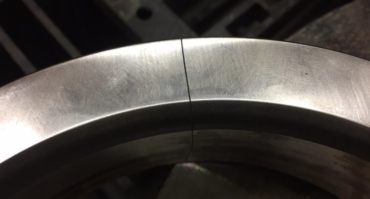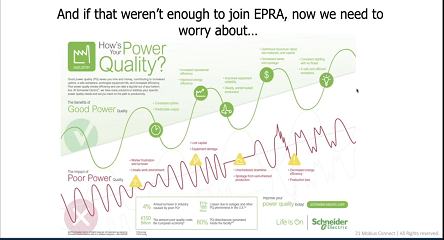Trust Your Technology – Trust Your Expert
A fault identified on a 1250HP electric motor showed that while we have proven technologies at our fingertips, we still often use our emotion (gut feeling) to make a call regarding our asset’s health.
During acceptance testing, vibration analysis identified an inner race defect on the outboard bearing of a motor which is used to drive a large pump. While the defect frequencies were very distinct and the Condition Monitoring Specialist expressed their concern and recommended the motor be rejected, the data was dismissed by the plant maintenance team who were more responsive to the rebuild facility representative who stated that, “there could not possibly be anything wrong with the bearing”. No data was presented by the rebuild facility during these discussions; they hadn’t run their own acceptance testing or provided any quality assurance documents.
Over the next 2 years the bearing was continuously monitored on a vibration analysis route. The defect frequencies were still present and further degradation was occurring. The plant maintenance team finally accepted the findings after the vibration started to be felt and a not-so-normal noise heard when present in the area.
The motor was replaced and during the rebuild it was found that the inner race was cracked, and surface fatigue had started. The rebuild facility still rejected the claim that this damage was present during the initial acceptance testing after it was rebuilt.

Some might say that this was a win for vibration analysis. We prevented a longer period of downtime and a more expensive repair cost due to a catastrophic and unplanned failure occurring. I struggle to call this a success. Not only did we lose a warranty claim by not using the data from the acceptance testing, but we also dismissed a recommendation from one of our experts.
How do you think it made the individual feel that their recommendation that was based on data, a proven technology, and years of experience was not accepted? What impact would that have on their and others’ motivation and willingness to highlight issues in the future?
This type of behavior isn’t standalone. There’s been many occasions I’ve been witness to, or been directly involved with, where the recommendation of an individual or team has not been supported. No matter how good the data and argument are, the expert is not trusted.
One of the five traits identified in High Reliability Organizations (HRO) is that they always defer to the expert. Deferring to the expert has an HRO listening to the expert rather than the authoritarian figure or those that are most vocal. They identify highly skilled individuals within their organization or know who to consult outside of the organization. These people are the subject matter experts and are utilized. They are one of the greatest assets an organization has.
So why is it still common today that with the ever-increasing amount of technology we have invested at our plants that we still don’t trust it and the experts we put behind it?



